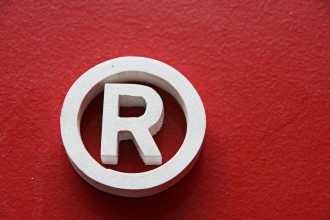July 27, 2020
Apparent Agreement Did Not Protect Condom Company from Attack
In Australian Therapeutic Supplies Pty. Ltd. v. Naked TM, LLC, [2019-1567] (July 27, 2020), the Federal Circuit reversed and remanded the TTAB’s dismissal of Australian’s petition to cancel Naked’s U.S. Reg. No. 3,325,577 for the mark NAKED for condoms.
The Board found that, although no formal written agreement existed, the parties entered into an informal agreement through email communications. Australian agreed it would not use or register its unregistered mark in the United States, and Naked could use and register its NAKED mark in the United States. The Board found that Australian led Naked to reasonably believe that Australian had abandoned its rights in the United States to the NAKED mark in connection with condoms.
The Federal Circuit said that the Board discussed the requirements to bring a cancellation proceeding under 15 U.S.C. § 1064 in terms of “standing” instead of a statutory entitlement to a cause of action under 15 U.S.C. § 1064, and proceeded to review de novo whether Australian has established entitlement to a statutory cause of action under § 1064. Section 1064 provides that a petitioner may seek cancellation of a registered trademark if the petitioner “believes that he is or will be damaged” by the registered trademark.
The Federal Circuit found that the Board’s requirement that Australian establish proprietary rights in its unregistered mark in order to demonstrate a cause of action under § 1064 was made in error. Neither § 1064 nor Federal Circuit precedent requires that a petitioner have a proprietary right in its own mark in order to demonstrate a cause of action before the Board. For example, a trade association may have standing to oppose a mark’s registration without having proprietary rights in a mark.
The Federal Circuit said that the Board determined that Australian had contracted away its right to use and register its unregistered mark, but contracting away one’s rights to use a trademark does not preclude a petitioner from challenging a mark before the Board. The Federal Circuit noted that while an agreement could ultimately bar Australian from proving actual damage, § 1064 requires only a belief of damage.
The Federal Circuit concluded that neither § 1064 nor its precedent requires that a petitioner in a cancellation proceeding must prove that it has proprietary rights in its own mark in order to demonstrate a real interest in the proceeding and a belief of damage.
On the issue of a real interest and reasonable belief of damage, the Federal Circuit said that such an interest exists where the petitioner’s application has been refused registration based on a likelihood of confusion with the challenged mark, or where the petitioner is making and selling products with the challenged mark.
The Federal Circuit said that Australian demonstrates a real interest in the proceeding because it twice filed an application to register its unregistered mark, and because the USPTO refused registration of both applications based on a likelihood of confusion with Naked’s registered mark. Australian’s applications for registration, the USPTO’s refusal of registration, and the USPTO’s suspension of prosecution support a conclusion that Australian Therapeutic meets the statutory requirements under § 1064.
Naked argued that Australian’s applications do not support a cause of action under § 1064 because Australian abandoned the first one and the second one was a post-filing futile attempt to establish its standing. Naked further argued that “mere ownership of a pending application does not in itself provide standing to oppose other applications.”
The Federal Circuit was not persuaded. The Federal Circuit noted that a trademark owner does not abandon their rights in a mark by abandoning prosecution. The Federal Circuit also noted Australian’s advertising and sales in the United States also demonstrate a real interest and reasonable belief of damage.
Naked challenged the sufficiency of Australian’s commercial activity because Australian’s marketing and advertising activities are “isolated,” “limited,” and “de minimis,” and its sales are “sporadic” and “nominal.” The Federal Circuit said that Section 1064, however, does not impose a minimum threshold of commercial activity, and it declined to define one.
The Federal Circuit concluded that based on the facts established before the Board, Australian had a real interest in the cancellation proceeding and a reasonable belief of damage, thereby satisfying the statutory requirements to seek cancellation of a registered trademark.



































